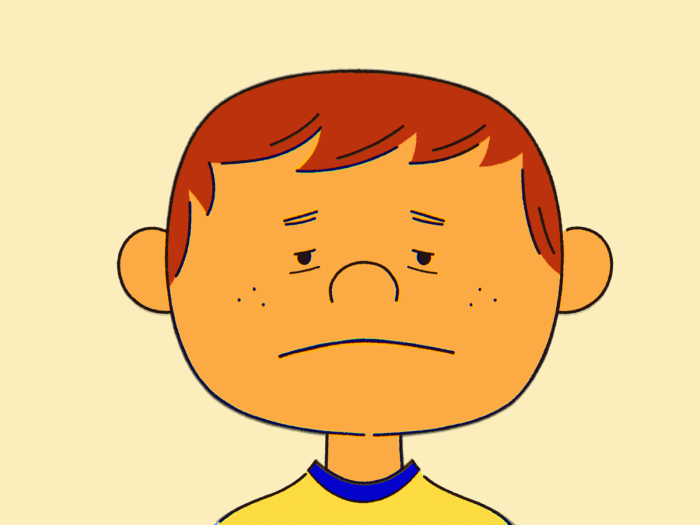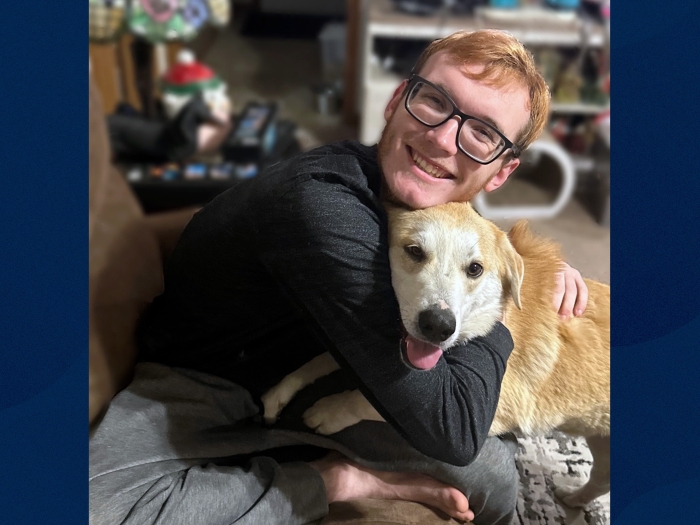Many parents haven’t talked to a clinician about their child’s regular belly pain, unconfident they’ll identify serious signs. Read 4 tips from a pediatrician on how to address it
9:38 AM
Author |

Tummy aches are common among kids, with one in six parents in a national poll saying their child experiences them at least once a month.
But not all parents seek professional advice when belly pain becomes a regular occurrence, and just one in three are sure they’d know when it might be a sign of a serious problem, according to the University of Michigan Health C.S. Mott Children’s Hospital National Poll on Children’s Health.
“Tummy complaints are common among children. This type of pain may be a symptom for a range of health issues, but it can be difficult to know if it’s transient or a cause for concern,” said Mott Poll co-director and Mott pediatrician Susan Woolford, M.D.
“Our poll suggests that despite benefits of seeking professional help, parents may not always consult with a doctor when determining whether belly pain is a sign of something serious and how to relieve it.”
Among parents reporting monthly belly pain for their child, two in five have not discussed the issue with a doctor, finds the nationally representative report, which is based on 1,081 responses from parents of children aged three to 10.
Some parents report less frequent belly pain, with nearly a third saying their child experiences it a few times a year, and more than half reporting their child rarely or never complains of tummy issues.
4 ways parents can manage and respond to children’s abdominal pain
1. Be on watch for potentially serious symptoms
Important signs abdominal pain may be a symptom of something serious include sharp intense pain, blood in the stool, and a hard or swollen belly. Parents should seek care if they notice any of these signs.
Parents also shouldn’t ignore pain that stops the child from engaging in their normal activities, worsens over time, or awakens them at night. Any pain that emanates from the belly button to the lower right side of the abdomen should especially be checked, as this could indicate the presence of appendicitis.
Other serious problems may include bowel obstructions, urinary tract infections and testicular problems such as hernias.
“Many parents polled weren’t confident they could recognize these situations,” Woolford said. “If a child is experiencing severe, frequent or disruptive pain, it’s always best to err on the side of caution and call the doctor.”
2. Consider the frequency of belly pain complaints
Parents should pay attention to the frequency of their child’s belly pain, even in the absence of more serious signs. Among parents who indicated their child has belly pain at least monthly, four in 10 have not discussed this issue with their child’s health care provider.
“This may be due to the symptoms not being viewed as very significant or parents feeling comfortable managing the pain at home,” Woolford said. “If a child is complaining about belly pain at least once a month, parents should keep a log of the frequency and characteristics of the pain to discuss at the child’s next health care visit.”
3. Explore non-physical causes
Nearly three fourths of parents think their child’s belly pain is related to digestion or food, such as gas, indigestion, and constipation while fewer point to a virus or infection as the cause.
But over a quarter of parents attributed their child’s belly pain to worry and anxiety or trying to avoid school or get attention; this belief was more common among parents of children aged 6-10 than younger children.
Many parents polled weren’t confident they could recognize these situations. If a child is experiencing severe, frequent or disruptive pain, it’s always best to err on the side of caution and call the doctor.” Susan Woolford, M.D.
“This situation warrants parental attention as it may be a signal of important emotional health concerns for the child,” Woolford said.
“Parents should give children a safe space to express their feelings and concerns and help them identify potential stressors, such as school-related pressures, family issues or social challenges.”
Woolford recommends parents try to understand the underlying source of their child’s worries or concerns without discounting or minimizing the child’s fears. Once parents better understand the source of the issue, they can help alleviate their child’s anxiety by clarifying any areas of misunderstanding, helping to brainstorm possible solutions, and intervening when appropriate (e.g., if the child is being bullied.)
If parents notice that their child complains frequently about anxiety-related belly pain, input from a behavioral specialist can also help offer insight into ways to manage their child’s symptoms and can show children techniques to recognize and deal with anxiety, Woolford says.
4. Read labels and understand side effects of medications
Nearly a third of parents are very likely to give an over-the-counter product when their child has belly pain, including probiotics, medicine for an upset stomach, pain relievers or stool softeners.
While some products may ease the child’s discomfort, others may be counterproductive, Woolford cautions.
For example, the active ingredient in some upset stomach medications is bismuth which slows down gut motility. While this would be helpful in limiting the course of diarrhea, she says, it may slow the process of recovery from a viral infection and may lead to constipation in children.

“Parents will naturally want help alleviate their child’s pain but they should understand the pros and cons of different remedies to make sure medicine makes it better and not worse,” Woolford said.
Before giving children medication to soothe tummy upset, parents should ensure that they select a product that does not contain bismuth or salicylates.
Parents may also use dietary changes to decrease the frequency of belly pain, such as increasing the amount of water and fiber in the child’s diet overall while decreasing processed foods. Probiotics may also help to improve the balance of bacteria in the child’s gut.
“Approaches that may work for one child may not work for another,” Woolford said. “Parents should monitor their child's response to treatment and seek medical advice if symptoms persist.”

Explore a variety of health care news & stories by visiting the Health Lab home page for more articles.

Department of Communication at Michigan Medicine
Want top health & research news weekly? Sign up for Health Lab’s newsletters today!





